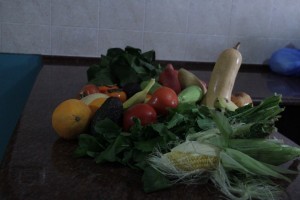By: Ahmed Safi
Not much has been said about vegetarianism in Islam, and even the interpretations that accompanied it, or the answers or writings about it, have been plagued by some confusion and misunderstanding of Islamic teachings derived from the Quran and the Prophetic tradition. Moreover, Islam did not explicitly address it in terms of analysis or prohibition. During our research, we have come across
For the aforementioned literature, what was published consisted of responses from Muslims living in Europe. These responses were accompanied by considerations for the context of a place where religious teachings may not be applicable to any religious group.

While the interpretations took into account the living conditions of Muslims outside the Islamic countries and considered the changes in location and religious teachings, they did not adequately consider the changes that have occurred over the past 1400 years. Furthermore, they made efforts in explanations that did not take into account the temporal and spatial context in which they were revealed.
The concept of vegetarianism involves abstaining from consuming any animal products entirely and relying on the numerous available plant-based alternatives. This approach does not stem from prohibition, which Islam rejects, as a Muslim should not forbid for themselves what Allah has made permissible, as stated in the Quran (Surah Al-Ma’idah 5:87). Consumption of meat and animal derivatives is not an obligatory act, and it does not incur sin for those who choose not to consume them or reward for those who do.
The obligation in this regard is not to deprive oneself of what Allah has permitted and to eat what is necessary for one’s sustenance, ensuring one’s well-being without endangering oneself. However, the transition to vegetarianism is a matter of personal choice and reflection on the reasons that lead us to make this choice. These reasons can be ethical, personal health-related due to the diseases caused by the modern meat industry, overall health considerations concerning the environmental disasters and excessive resource consumption caused by the meat industry, and the idea of extravagance and greed in consumption.
Indeed, 1400 years ago, the Arabs heavily relied on pastoralism as a source of food, including meat, clothing, and milk derived from livestock. The desert environment did not offer the same variety of plant-based foods, grains, vegetables, and fruits as we have today, except for dates. People had to find what could satisfy their bodies’ needs and keep them alive, which included a diet that consisted of dates, wheat, and barley.
This is why livestock and cattle were considered a source of food, but in moderation and with compassion, unlike the industrial farming practices we witness today in large-scale farms.
Furthermore, the significant changes that have occurred since then in the meat industry do not align with many Islamic teachings. These teachings emphasize compassion, the conditions for acquiring and raising animals, and not interfering with their natural state created by Allah, which was intended to meet the growing demand for meat.
This includes the way animals are handled, transported, and harnessed solely for food production without providing them with the necessary elements of life that Allah has commanded us to provide. It also extends to methods of slaughtering, meat production, and excessive consumption. These changes in the meat industry have raised ethical and environmental concerns that were not prevalent during the time of early Islam.
It is important for Muslims to consider these evolving factors and adapt their practices to align with the core values of compassion, mercy, and responsible stewardship of the Earth as taught by Islamic teachings. This can involve adopting more ethical and sustainable practices in the treatment of animals and in meat consumption.
Many verses in the Quran emphasize the importance of plant-based nutrition. Allah has sworn by various natural foods, such as figs and olives, highlighting their great benefits. For instance, Allah advised Mary to consume dates after giving birth, without mentioning the availability of bird or sheep meat. There are numerous examples of this aspect in the Quran, and delving into these verses is essential for those seeking more knowledge.
When we examine what Allah has promised to believers in Paradise, we find that the foundation of their meals is fruits, followed by meat. This differs from worldly meats and fruits, as mentioned in various verses, such as Surah At-Tur (52:22), Surah Al-Waqi’ah (56:20-21), and Surah Al-Mursalat (77:41-42). As previously mentioned, the preference is evident in the initial mention, with Allah favoring good fruits over animal products.
This highlights the Quranic emphasis on the significance of plant-based nutrition and the goodness derived from fruits and their potential as a primary source of nourishment.
Correcting linguistic inaccuracies when discussing food and its regulations is clear when viewed from a corrective perspective without exaggerating in scrutiny or complexity beyond what Allah has made easy for us.



